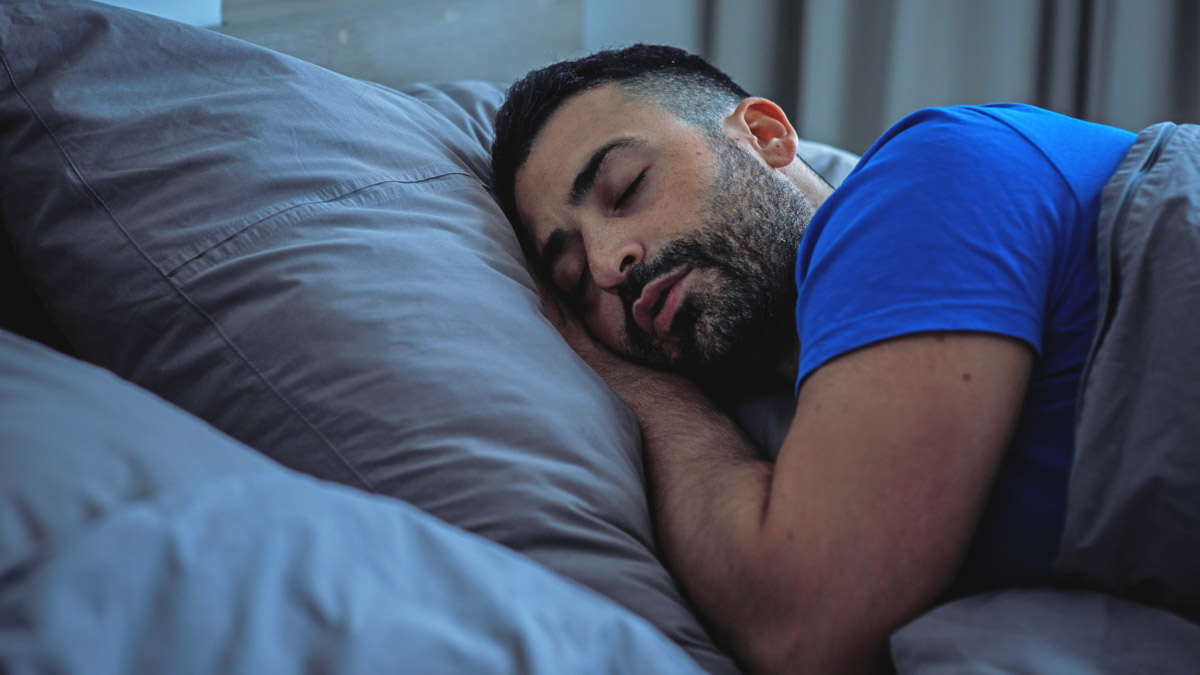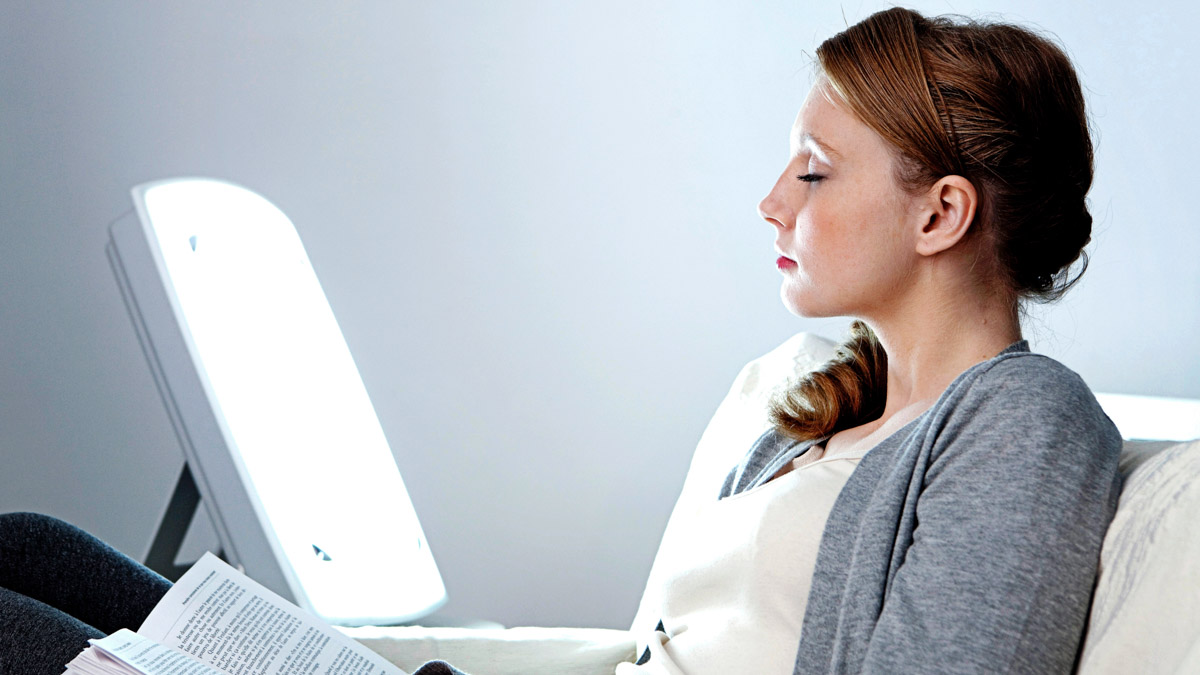Before the invention of the electric lightbulb, most people’s sleep and wake cycles were governed by the rising and setting of the sun. But then along came Thomas Edison’s famous invention and, consequently, widespread electrification. Suddenly, factories could schedule round-the-clock shifts, some of which made employees work when they could be sleeping, while lighting homes and streets allowed people to stay up later after dark. This was the beginning of what we now know as circadian rhythm disruption.
Everyone has a bad night once in a while and life throws curveballs like kids waking up crying, bosses scheduling early or late meetings, and a friend who’s in town calling you for an unexpected drink. But if chaos becomes your default, it can start to take a toll by getting your body out of sync with your schedule. On the wellness front, circadian rhythm disruption can negatively impact brain and heart health, disrupt energy metabolism, and cause or worsen emotional issues. From a performance perspective, an irregular sleep-wake cycle delays reaction time, reduces coordination, and, according to a study published in Current Sports Medicine Reports, impacts muscle recovery by disrupting hormone levels. Let’s look at a three-stage plan for how to fix circadian rhythm.
Step 1: Start Your Day Outside and With Movement
The first thing you do in the morning might be to reach for your coffee pot. While caffeine can enhance your wake drive, consider stepping out on your porch, deck, or patio while that must-have cup of Joe is brewing. Getting outside within 30 to 60 minutes releases a healthy level of cortisol into your system to promote wakefulness and focus, according to Stanford neuroscientist Dr. Andrew Huberman.
Before you get stuck behind your desk for the rest of the day, also consider getting in some morning movement. This could be a full training session, a few minutes of yoga or mobility, or walking to a coffee shop to get your caffeine fix. Anything outside gets you bonus points.
You could repeat this in late morning by taking a walking meeting with a colleague, or wandering to a deli or restaurant to grab lunch instead of driving there. The more physical activity you can do early and the greater the amount of sunlight you can expose yourself to, the more alert your body and brain will be (not to mention getting some much-needed vitamin D). Huberman also suggests using bright overhead lights to trigger a further release of dopamine and norepinephrine, which promote focus and alertness.
Step 2: Limit Caffeine in the Afternoon
If you’re going to take a nap, early afternoon is the best time to do it, as waiting too late could delay sleep onset and duration at night. Unless you’re a fast metabolizer of caffeine, it’s also best to consume your second coffee just after lunch and then limit lower caffeine options like green or white tea beyond midafternoon. The half-life of caffeine is around six hours on average, so 50% of the buzz from a 5 PM latte will still be doing its thing at 11 PM.
While morning workouts can also help stabilize your circadian rhythm, so too can an afternoon run, ride, or lift, as well as getting you some extra sunshine in certain seasons. Seeing the sky darken and the sun setting while outdoors is a natural cue for your body to transition into an evening phase and start producing sleep-promoting chemicals like melatonin. So training at dusk would check both these boxes.
Step 3: Stimulate Your Sleep Drive to Fix Circadian Rhythm
Even if you’ve kept yourself on track during the day, nighttime can still derail your sleep-wake cycle. One of the first things to manage is light exposure. Swap bright overhead lights for lamps, and when possible, use darker Edison bulbs rather than super-bright LEDs, as they’ll be less disruptive.
Limit Screen Time
If you have to work late, darken your laptop screen with an app like f.lux and set your phone to night mode. Then be sure to steer clear of your devices once you’re two hours out from bedtime. Even with a darker display, the mental stimulation could still delay sleep onset and duration, according to the Sleep Foundation.
Regulate Liquids and Alcohol
So could too much fluid. One of the most common reasons to wake up at night is needing a bathroom break, which is why my Unplugged co-author and Cal State physiologist Dr. Andy Galpin has compared overconsuming water at night to stepping over a dollar to pick up a penny. While you might need to rehydrate after a nighttime workout, try to do so earlier and then switch to drinking to thirst as the evening goes on.
Though it can make you feel drowsy, alcohol can have a rebound effect during the night and reduce time spent in deep, restorative slumber, which is why sleep expert Dr. Matthew Walker avoids it. So stick to one or two drinks earlier in the evening and consume them with food so you don’t get a blood-alcohol spike.
Create the Perfect Sleeping Environment
The body is extra sensitive to fluctuations in temperature, sound, and light during slumber, so you need to engineer your environment on all three fronts. Set your thermostat between 60 and 65 degrees Fahrenheit, use ear plugs (and if you’re in a loud neighborhood, consider a white noise machine), and install blackout curtains to keep street lamps and other outdoor lights away from your eyes.
Be Consistent When You Go to Bed and Wake Up
The timing of your bedtime matters, too. This isn’t about whether you’re an early bird, night owl, or anything in between. Rather, try to make sure you’re turning in around the same time every night and setting your alarm for a consistent wake time. Elite sports teams also evaluate time in bed, as few people drift off right away. Just be sure that this offramp doesn’t include sneaky screen time.
There will still be times when your schedule, travel, or an unexpected life event is disruptive. But if you can keep training regularly, go to bed and get up around the same time daily, game your light, dark, and screen exposure, limit caffeine and alcohol intake, and sleep in a cold, dark, quiet room more often than not, you should be able to keep your circadian rhythm consistent.
References
Huberman, A. (2021, September 19). Toolkit for Sleep. Retrieved from https://hubermanlab.com/toolkit-for-sleep
Pacheco, D. (2022, December 15). How Electronics Affect Sleep. Retrieved from https://www.sleepfoundation.org/how-sleep-works/how-electronics-affect-sleep
Simmons, N. et al. (2022, January). Are Circadian Rhythms a New Frontier in Athletic Performance?. Retrieved from https://journals.lww.com/acsm-csmr/fulltext/2022/01000/are_circadian_rhythms_a_new_frontier_in_athletic.3.aspx
Walker, M. (2020, July). How caffeine and alcohol affect your sleep [Video]. TED Conferences. https://www.ted.com/talks/matt_walker_how_caffeine_and_alcohol_affect_your_sleep









